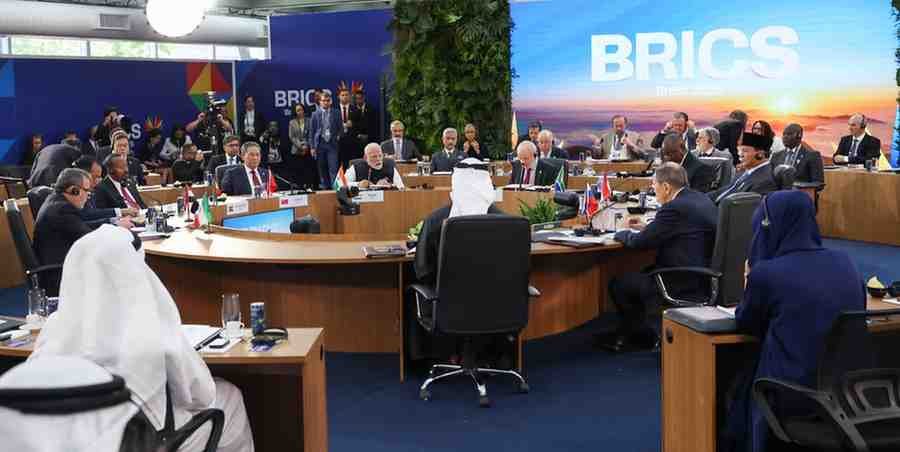In a powerful and evocative address during the BRICS Summit, Indian Prime Minister Narendra Modi made a compelling case for the comprehensive reform of global governance institutions. Speaking at the session focused on “Reform of Global Governance,” the Prime Minister highlighted the pressing need to make international institutions more representative, inclusive, and effective in addressing 21st-century challenges.
At the outset, PM Modi expressed his appreciation to Brazilian President Luiz Inácio Lula da Silva for the successful organisation of the 17th BRICS Summit. Commending the energy and revitalisation brought under Brazil’s chairmanship, he quipped, “The energy we’ve received isn’t just an espresso; it’s a double espresso shot!” He further extended his congratulations to President Prabowo of Indonesia on the nation’s inclusion in the BRICS family, underscoring India’s support for greater inclusivity in the grouping.
Double Standards Faced by Global South
Addressing the historical imbalances in global governance, the Prime Minister turned the spotlight on the persistent neglect faced by the Global South. He stated that developing countries often contend with double standards, particularly in the realms of development, equitable distribution of resources, and security. “The Global South often received nothing more than token gestures on topics like climate finance, sustainable development, and technology access,” he noted.
Modi emphasised that nearly two-thirds of the world’s population remains inadequately represented in global institutions formed in the 20th century. This, he argued, hampers the credibility and effectiveness of these institutions in responding to modern-day issues. Using a striking analogy, he said, “Without the Global South, these institutions are like a mobile phone with a SIM card but no network.”
Need for Inclusive and Multipolar Order
The Indian Prime Minister reiterated India’s vision of a more inclusive and multipolar global order, one that starts with deep-rooted reforms in existing global structures. According to Modi, reforms should not be superficial or merely symbolic, but instead should lead to measurable changes in governance structures, voting rights, and leadership representation. “The challenges faced by countries in the Global South must be given priority in policymaking,” he asserted.
Highlighting the urgency of these changes, he pointed out that institutions like the United Nations Security Council (UNSC), the World Trade Organization (WTO), and Multilateral Development Banks have remained largely unchanged for decades, rendering them ill-equipped to handle contemporary challenges ranging from armed conflicts and economic shocks to pandemics and emerging threats in cyberspace and outer space.
In one of the most quoted lines of his speech, PM Modi remarked, “In the age of AI, where technology evolves every week, it’s unacceptable for global institutions to go eighty years without reform. You can’t run 21st-century software on 20th-century typewriters!”
BRICS Expansion and India’s Commitment
The Prime Minister welcomed the expansion of the BRICS grouping and the inclusion of new partners, viewing it as a positive indicator of the bloc’s adaptability and relevance. He urged that this same spirit of transformation be channelled into revitalising global institutions that have not kept pace with shifting geopolitical and economic realities.
Underscoring India’s commitment to international cooperation, Modi reaffirmed that India remains devoted to working with BRICS members to ensure the collective progress of humanity. “India has always considered it a duty to rise above self-interest and work towards the interest of humanity,” he said, adding that India will continue to make constructive contributions across all areas of collaboration.
The speech marks one of India’s strongest calls yet for institutional reform on the global stage, reflecting the country’s growing confidence and its aspiration to play a leading role in shaping a fairer international order. As BRICS continues to expand and redefine its strategic agenda, India’s advocacy for the Global South is expected to remain a central pillar in its multilateral diplomacy.








